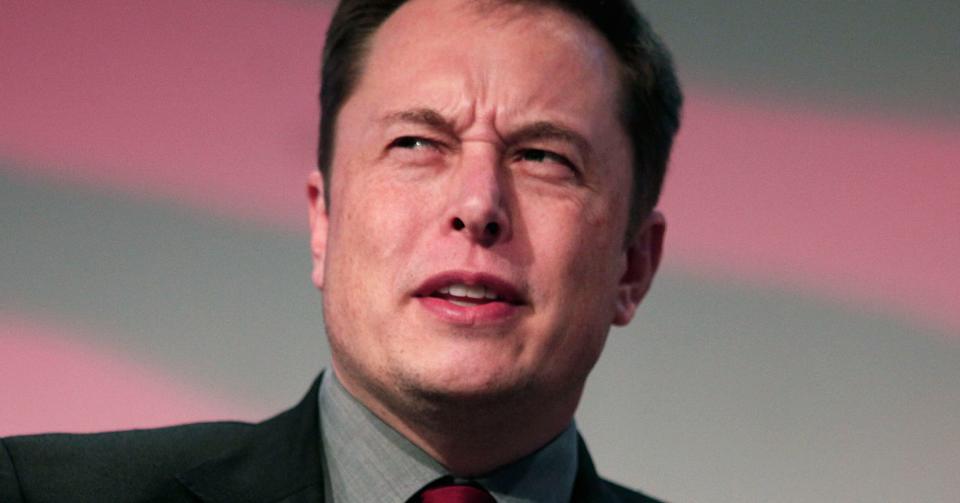Tesla's 'major new product line'-is it a battery?

On Monday, Tesla (TSLA) Chief Executive Elon Musk took to Twitter to tease a new product announcement : "Major new Tesla product line—not a car—will be unveiled at our Hawthorne Design Studio on Thursday at 8 pm, April 30."
The tweet fueled a tidal wave of speculation from Wall Street and news outlets that the mystery product would be a stationary battery storage system for residential customers. There's still no firm indication that what Musk will debut will be a battery system, or anything related to energy, for that matter. But there's reason to guess that it could be. (Tweet This)
Tesla has confirmed nothing ahead of next month's announcement, but here's what Musk himself said on the electric carmakers' February earnings conference call: "We're going to unveil the Tesla home battery or the sort of consumer battery that will be for use in people's houses or businesses fairly soon. We have the design done, and it should start going to production probably in about six months or so. We're trying to figure out a date to have the product unveiling, but it's probably in the next month or two months."
Read More Analyst: Keep calm and buy Tesla
The company's been testing residential stationary batteries in roughly 200 to 250 California households, according to a Global Equities Research analyst note from Monday, and it already supplies lithium-ion batteries (which it also uses in its electric cars) to sister company SolarCity (SCTY) (also founded by Musk).
Presumably, once Tesla's $5 billion lithium-ion battery plant—dubbed the " gigafactory "—gets up and running, large-scale production could be done from there as well.
If some sort of battery is indeed the product on tap at April's event—and with the caveat that the world outside Tesla's Palo Alto, California, headquarters has few details in the meantime—it could become part of a much bigger discussion not only for the future of Tesla, but for power generation.
For years now, cost-competitive energy storage has persisted as the missing link for renewable energy, the main roadblock to more widespread adoption of technologies such as solar photovoltaic panels.
"Cost-effective storage has been the 'holy grail' of renewable energy for some time," said Jeffrey Osborne, a senior research analyst at Cowen and Co. covering alternative energy, via email. "The problem with wind and solar is that it is not 'dispatchable' power to use when you need it and you have to hope the wind is blowing or the sun is shining. Residential, commercial and utilities want storage combined with solar, it is just very expensive historically."
GTM Research, a market analysis firm that focuses on solar power, estimates that the combined market of solar-plus-storage could grow to $1 billion in 2018, up from $42 million in 2014.
It's highly likely that Tesla intends to play a role in that market. Morgan Stanley published a report last July asserting that, "From our analysis of the economics of energy storage products, we conclude that Tesla will likely have the most economic energy storage solution by a significant margin."
SolarCity, of which Musk is also chairman, currently controls 30 to 40 percent of the U.S. residential solar market, according to Cowen's Osborne, and storage represents an opportunity to cross-sell more products to customers.
Read More Solar energy's unexpected conservative backers
That said, Tesla isn't the company racing to get an attractively priced product onto the storage market. Earlier this month, SunEdison announced that it purchased Solar Grid Storage. In December, SunPower (SPWR) unveiled a partnership with privately held Sunverge Energy for both residential customers and utilities. Enphase Energy (ENPH) and Ideal Power (IPWR) are also targeting this space, as are start-ups Primus Power and EnerVault.
MIT professor Donald Sadoway has been developing another kind of stationary storage technology called liquid metal batteries, rolling out pilot programs for larger-scale use within the grid through Ambri, a company he started with several former students. Last fall, Sadoway told CNBC that widespread deployment of batteries could decentralize the aging power grid and reduce the rising cost of electric bills for consumers.

 Yahoo Finance
Yahoo Finance 
